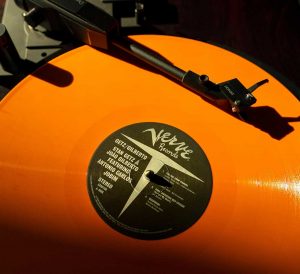For almost 70 years, Verve Records has been a linchpin for Jazz musicians. Founded in 1956 by Norman Granz to release new recordings by Ella Fitzgerald, it has become the home of the most significant jazz catalogue in the world. From vocal jazz to bebop to Latin, it has supported the careers of an almost endless list of greats, including many Jazz giants such as Charlie Parker, Nina Simone, Oscar Peterson, Abbey Lincoln, and Herbie Hancock.

What is it like to be responsible for such a wide-ranging catalogue, and what are the joys and challenges? I sat down with Jamie Krents, the President of Verve Records, to find out.
Jamie fizzes with energy and enthusiasm despite battling jet lag, having just arrived in London from America the day before. Becoming President of Verve Records was not the career path he had in mind when he joined the record company in 1998. “It was a total accident”, he recalls. “I was playing in bands and between some tours and needed to make money because the bands were not doing that. So I took a job as a temp, thinking I’d be there for two or three weeks and get some free CDs and be on my way. That was in 1998!” He reflected wryly.
The historical success of Verve Records is incredible. Some of the most seminal jazz albums ever released are to be found in their catalogue, and their Grammy award count continues to rise with notable additions being Samara Joy’s New Artist Grammy in 2023 and Jon Batiste’s incredible 5 Grammy wins out of 11 nominations in 2022. So, to be the head of such a successful label must be incredibly demanding? “Yes, we have a lot to live up to, given the label’s legacy and history.” He mused. “I’m proud of the work we’ve done as a team. It has been a very good couple of years for Verve and our artists, but we’re always in service to both the living roster and the catalogue. We spend a lot of time on our catalogue, too. And are very hands-on with it. I look at it as a continuum.”
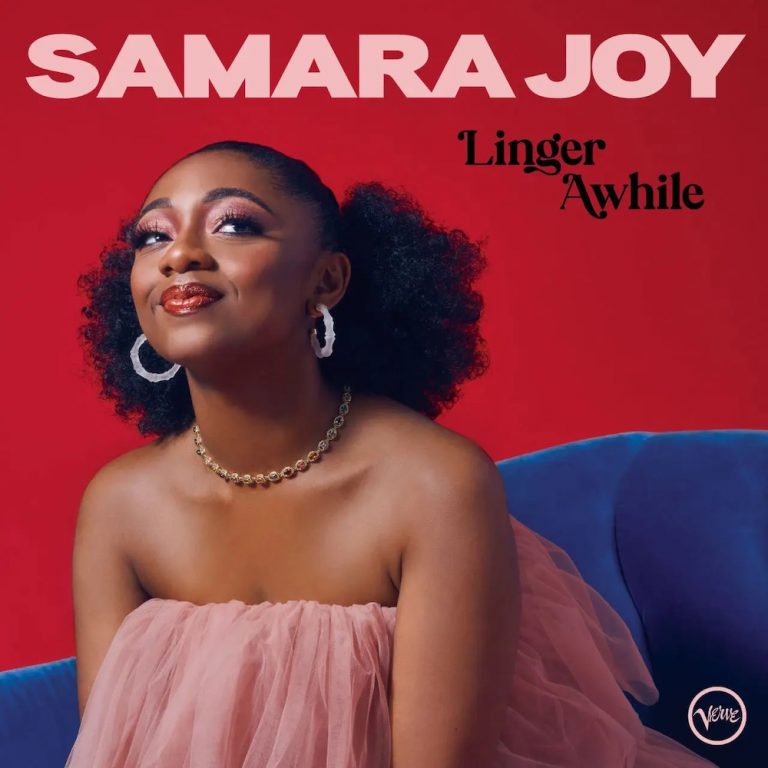
SAMARA JOY Linger Awhile
Available to purchase from our US store.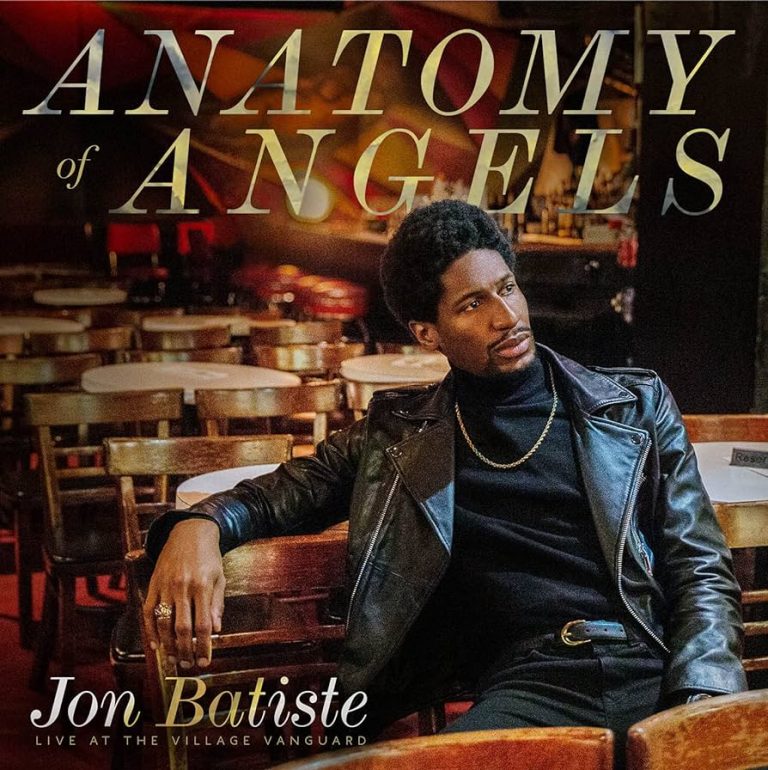
Jon Batiste Anatomy of Angels - Live at the Village Vanguard
Available to purchase from our US store.What are the day-to-day demands on his time, and how does he juggle it all? “I don’t find it strange if a third of my day I’m working on an Ella Fitzgerald or Nina Simone album, a third of my day I’m working with an artist like Samara Joy, and then a third of my day I’m looking at a marketing plan or starting to look at our direct-to-fan merchandise, such as working on a cool Verve hat.
Vocal Jazz has always been a cornerstone of Verve Records. Jamie describes the catalogue as a ‘kind of Mount Rushmore’. But it can also be the first foray into jazz for many people. “Vocal jazz has broad appeal, he says. “I’m a fan of avant-garde music, challenging bebop, and other things. But, we can let vocal jazz serve in some ways as the gateway to other kinds of jazz. The music of Ella or Samara Joy is so approachable and that might be what gets you in the door and then you discover, ‘Oh, I like Stan Getz or Oscar Peterson or Shabaka Hutchings’ or any of the people that we work with. So it’s something that we can never take our eye off.”

Among the many singers on the eclectic roster is Sarah Vaughan, whose centenary is being marked this year. A contemporary singer often compared to her is the 24-year-old Samara Joy, now a multi grammy award winner. Her background is gospel; she grew up singing in the church and comes from one of America’s preeminent gospel music families. One of her bravest choices on her debut album was to cover “ Guess Who I Saw Today”, a classic song rarely tackled. What did he make of that? “You and I had the same thought when I saw that song was on the tracklist. I said, oh, that is bold! But you know, she pulls it off. I mean, she is Samara.
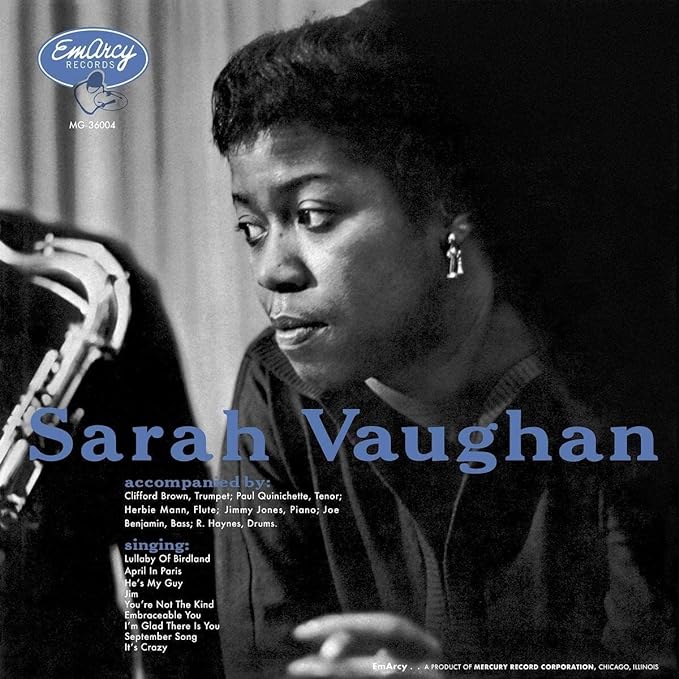
SARAH VAUGHAN With Clifford Brown
Available to purchase from our US store.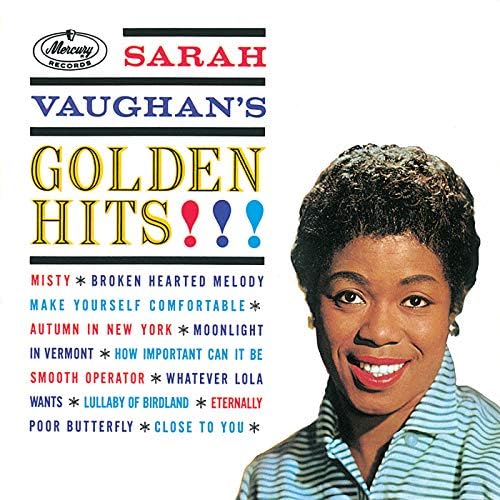
SARAH VAUGHAN Golden Hits
Available to purchase from our US store.Because she’s only been singing jazz for five or six years, in some ways, I feel like she hasn’t been intimidated by it in the way someone who was studying that canon their whole life might have been.” And how egregious is it for her to be constantly compared to Sarah Vaughan, particularly as she is trying to define her own path as an artist? “They do get compared a lot, ” says Jamie, “And I think sometimes it’s almost reductive when people just say, ‘Oh yeah, she sounds like Sarah Vaughan’. Yes, I get it. There are some tonal things, some phrasing things, and yes, Samara loves Sarah Vaughan, but I think Guess Who I Saw Today is a good example of her saying, I’m going to bring my own thing to this.”

Compared to legacy artists on the Verve roster, nowadays, an artist must not only deliver musically but also embrace the challenges of social media, which is an additional pressure. Jamie thinks that it can be overwhelming. “I mean, it depends on who you are. There are some people for whom it’s so natural, and they find their voice quickly in a way that’ll work on social media. Others say this isn’t what I signed up for. ‘I really wanted to just focus on music, and my fans don’t need to know what I had for breakfast or who walked the dog today’. I think the best version is people finding a way to do it. If it’s not about their personal life, they find another modality, but it is a lot. And I think especially when you have to fold it into doing press and touring and making records and writing, it’s a second job. But unfortunately, if you’re not doing it, you are not fully in the game.”
But what kind of support does Verve provide their artists for this? “We have a department at our label entirely focused on helping artists with this stuff. But I’ll be honest, we can post for you and create content, but when it’s not authentic and does not really come from the artist to their fans, it just doesn’t connect. And we don’t see it having the same effect or going viral. So, while we’re there and can provide a lot of resources, best practices, and guidance, the artist has to find a way to be present with it. It may not be fair, but I think that is the world we live in now.”
With streaming now becoming how millions of people access their music, I was curious to hear what Jamie thought about its impact on the music business and whether the days of the album are over because of it. “Streaming is probably our biggest challenge,” Jamie replied thoughtfully, “because we have artists making eight-minute songs, artists where the vocal doesn’t come in for seven minutes, or instrumental music. But it’s gotten a lot better. There are now playlists for all sorts of things. It’s not just about today’s top hits. There is now more of a mood or lifestyle element where you can say, this would be great in a meditation playlist. Or this would be great in a studying playlist. But algorithmically, it’s challenging.”
But what about the album? “I don’t think the album is dead!” He exclaimed. “We still have artists that very much look through the lens of a body of work and make records that you can listen to all the way through, and I think there’s enough room for that, too. Especially on a label like Verve, which is a bit left of centre, I don’t know if that will always be true, for down middle-pop artists, which is undoubtedly a singles-oriented space. But for us, the album is still alive. We’re still doing a lot of vinyl. We’re still doing CDs that are relevant in some parts of the world.”
There is no doubt that Verve have found clever ways to engage with the diversity of the contemporary listener. The Great Women of Song series is an example of that. Jamie sees those series as a jumping-off point of discovery. “I think part of the problem with streaming is you can access millions of songs. Where do you start? What are the filters like? You need, I think, still to offer an entry point.”
The future of jazz is often questioned: can it survive in the future, or will it morph into something broader? Jamie has few concerns about that as he believes this is the “best time for Jazz in my lifetime.” But the key, he believes, is whether artists are making generational records that will stand the test of time. “What’s so great about labels like Verve and Blue Note is you’ll be listening to records from the fifties and the sixties forever. We should be applying the same standard to artists making music today. That’s what we look for now. People making music in 2024, making a record that people will listen to in 2054, and it won’t sound dated or like it was chasing a trend or, anything like that.”
Jamie began his career as a bassist, and I was curious to hear who his bass heroes were. “On the electric bass, I love Willie Weeks, who played with Donnie Hathaway. I love Aston ‘family man’ Barrett, who just passed away and played with Bob Marley, and Jerry Jemmot, who played with Aretha Franklin. But on double bass, Charles Mingus is my favourite, but I also love Ray Brown. They are two very different bass players playing different kinds of music, but those are probably my two favourites. Today, I think Christian McBride is the greatest living bass player and also such a cool guy. He’s programming the Newport Jazz Fest, and he’s a total Renaissance man.”

One of the perks of his job is he gets to meet his musical heroes, one of whom is Pino Palladino. “He records for us on the Impulse label” says Jamie. “And so a couple of times he’s come into the office, and I’ve absolutely tortured him. I think he thinks he’s there to talk about his albums and marketing, and I’m asking him what kind of strings he’s using,” he laughs. “It’s probably the least professional thing I’ve ever done, but I think he’s like from another planet!”
Another perk is the comprehensive vinyl archive, based in their offices in New York. “We have a vinyl archive where we have a copy of, probably about 90 percent of everything that ever came out. Original copies, 78s. Going back to the singles and, again, because Verve encompasses the catalogues of so many labels like Decca Jazz, Commodore, and Impulse, you have these incredible logos, and it’s just so tactile. When I started working at Verve, I would spend a lot of my lunch hours there,” he says excitedly. “The vinyl, you feel like you’re in this amazing record shop, and you can just sort of go in there and soak it in. When we’re signing artists, it’s something we always show them because I think it puts it in perspective that this is a label that’s got great history”
And Verve continues to unearth fresh music from that archive. A soon-to-be-released Louis Armstrong album is an example. “It’s easy to focus on What a Wonderful World, which was the top streaming jazz song last year,” Jamie says. “But he’s an icon who had so many chapters, and he was such a great ambassador for jazz. He is absolutely one of our linchpins. We have a project coming out soon that I’m very excited about. In the late 60s, Louis recorded ‘What a Wonderful World’ towards the end of his life, which was polarising. Some people at his label were not in favour of it; they didn’t think it had the right vibe, and they thought it was cheesy. It wasn’t particularly successful in the US, but it became a number-one hit in the U.K, which thrilled him no end, and he came over here. He did concerts and promotions, and he filmed this amazing performance at the BBC, but it’s never been properly released, so we will be releasing Louis in London! And it is incredible, not only because of the quality of the performance, He was in top form, but there’s this beautiful full-colour footage of it, so it’s like we have music videos for every song, featuring all of his best-known material with a great band. It’s really something that should have come out properly at the time. And we’re grateful that we have a chance to do that now and give its flowers, you know.”
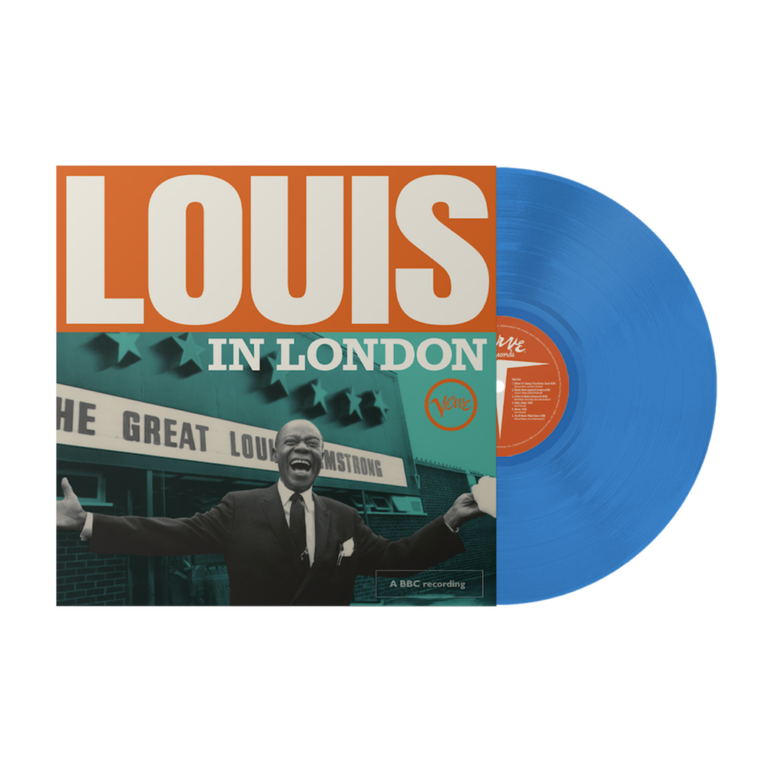
Louis Armstrong Louis in London
Available to purchase from our US store.I asked him what else he was excited about besides that extraordinary forthcoming release. “Julius Rodriguez, a savant multi-instrumentalist, has his second record for Verve coming out…and Shabaka Hutchings’ new record on Impulse. He’s retired from the saxophone, and he’s playing the flute. Shabaka has been spending a lot of time in Japan, studying with these masters of the wooden flute. And I think we live in such a crazy, hectic world. It’s incredible, beautiful, and meditative music, and I feel it’s badly needed. We’ve also signed an artist named Liana Flores, a young woman from the UK who had one track that went incredibly viral. I would describe it as a mix of Bossa Nova and English folk; her debut album will come out later this year. Those are just a few of the things. And then loads of great reissues, plus some incredible vinyl.”
As he gets up to dash to his next meeting, he says, “My job really is the best job. Come visit us” he continues, “I’ll be happy to show you the archive.” I’ll definitely be taking him up on that offer!
Jumoké Fashola is a journalist, broadcaster and vocalist who currently presents a range of Arts & Culture programmes on BBC Radio 3, BBC Radio 4 & BBC London.
Header image: Verve Records’ Getz/Gilberto on orange vinyl. Photo: AP Photo/Robert F. Bukaty via Alamy.


